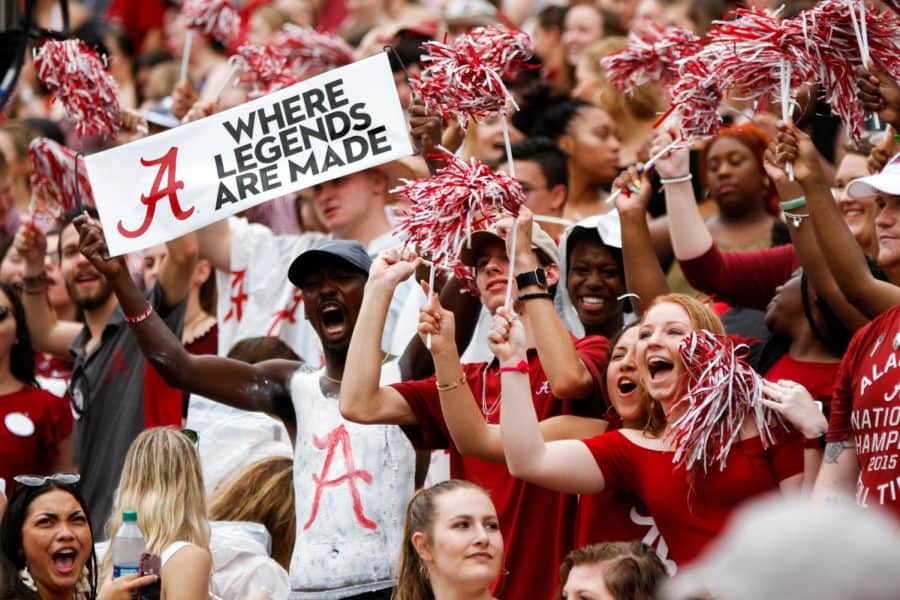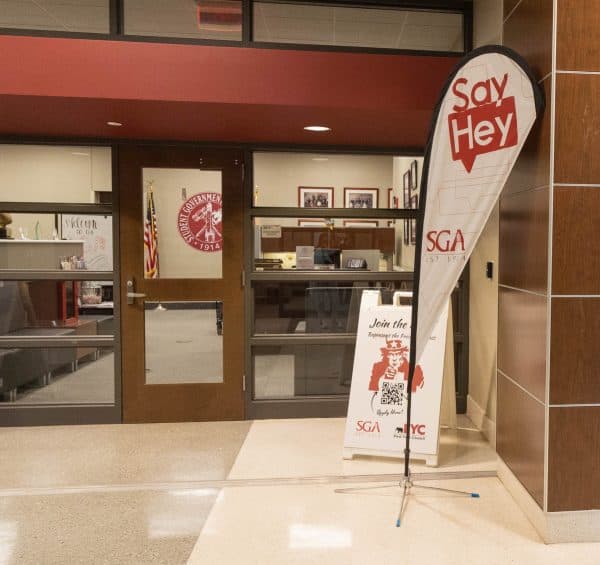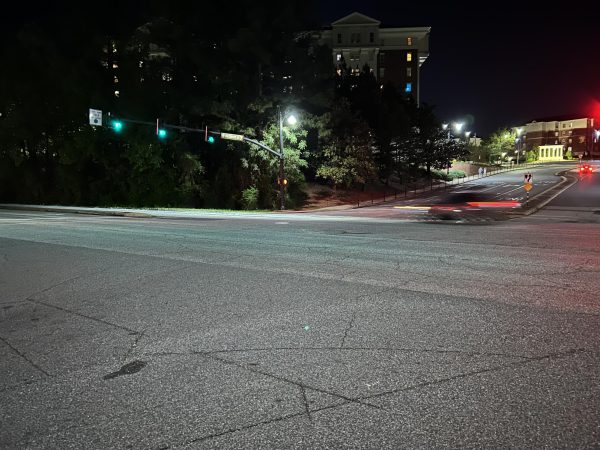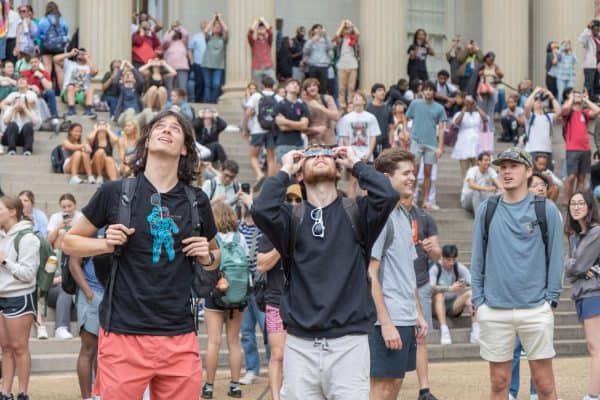Block seating numbers reach record high
September 27, 2018
Katie Newman is one of approximately 5,600 students who has had the chance to enjoy the record amount of block seating offered to students this year.
Newman, a sophomore double majoring in dance and marketing, said she enjoys sitting with her Alpha Chi Omega sorority sisters and found there are many benefits that come with being able to spend part of the weekend together in Bryant-Denny Stadium with friends.
“Alpha Chi Omega has a really good block, so I like being in the front,” Newman said. “If your main source of friends is your sorority, then it’s super convenient to have a spot where all your sorority girls are sitting.”
This year, the student body was granted an additional section of 900 seats within the stadium because of a record amount of SOURCE-registered sororities, fraternities and clubs applying for block seating.
As Student Government Association (SGA) vice president of student affairs, Clay Martinson, a junior majoring in history, has dealt extensively with the block seating process for this year. He said this was the first year that an uptick in interest for block seating allowed for block seating’s overall expansion. The amount of organizations that applied and completed the process for block seating reached an all-time high at 57, an increase from last year’s 49.
“We usually have to take seats away from people,” Martinson said. “This year we had about 10 more organizations apply than we had the year before, so that’s why we had to expand into the section two, which we got 900 extra seats.”
The SGA received permission from David Grady, vice president for student life, and Steven Hood, associate vice president for student life, to add the additional seats.
“We were fortunate enough to work a deal with them and extend into S2,” Martinson said. “The deal was we would stay longer. We would stay in the fourth quarter.”
SGA Program Assistant Stephanie Shamblin said staying for four quarters is important because recruits brought in by the Athletics Department want to see a packed crowd.
“They bring in recruits, and they want to see a full stadium,” Shamblin said. “When you look up and you see the student section kind of empty, it defeats the purpose.”
To enforce attendance throughout the game, the SGA has begun to encourage organizations to “play for four, stay for four,” and has collaborated with the Athletics Department to take photos 30 minutes before the game, before the third quarter and at the beginning of the fourth quarter, Shamblin said.
Additionally, she said there is a weekly prize sponsored by Coca-Cola for the block that has the best attendance throughout the game.
“It’s more fun when you are around people you like,” Martinson said. “That encourages people to stay more.”
Martinson said sanctions are administered to sections if they do not attend games.
“There are penalties if your block is not filled,” Martinson said. “We have a warning, and then we will take away blocks for a game if they are not full.”
Martinson said block seating becomes open to everybody if the block is still vacant 30 minutes before kickoff.
Organizations acquire block seating by completing a rather complicated step-by-step process, Martinson said.
The process begins with SOURCE-registered organizations attending an interest meeting. Those organizations then receive a packet including multiple essays about how they would add value to game day before inquiring about the organization’s philanthropy. The packet accounts for 20 percent of the organization’s overall score.
“We send out a mass email, and then we have an information meeting where we will talk about the process and everyone will sign in,” Martinson said. “Everyone who signs in, we have them ready to go, and we send out the email with the Qualtrics form where they start getting the packet.”
Organizations then insert the appropriate number of student GPAs for seats that they would like using the 1.5 multiplier that is in place via block seating rules. The GPAs submitted by the organization account for 50 percent of the organization’s final score.
“If an organization submits 100 names, that means they want 150 seats,” Martinson said.
Martinson said after the grading process is complete, each organization is ranked by their score and placed accordingly by Shamblin and Martinson.
“We take people from there, and we rank them off their scores,” Martinson said. “The No. 1 slot goes to the No. 1 person, two, three, four, and that’s whoever’s closest to the field.”
Block seating is a way for student organizations to spend time together and celebrate the football game, Shamblin said.
“It’s another great opportunity for us to provide for our students and the interests that they have in belonging to organizations,” Shamblin said. “This is just another thing — that you can have a great section to sit together with your friends at the football game and support.”











